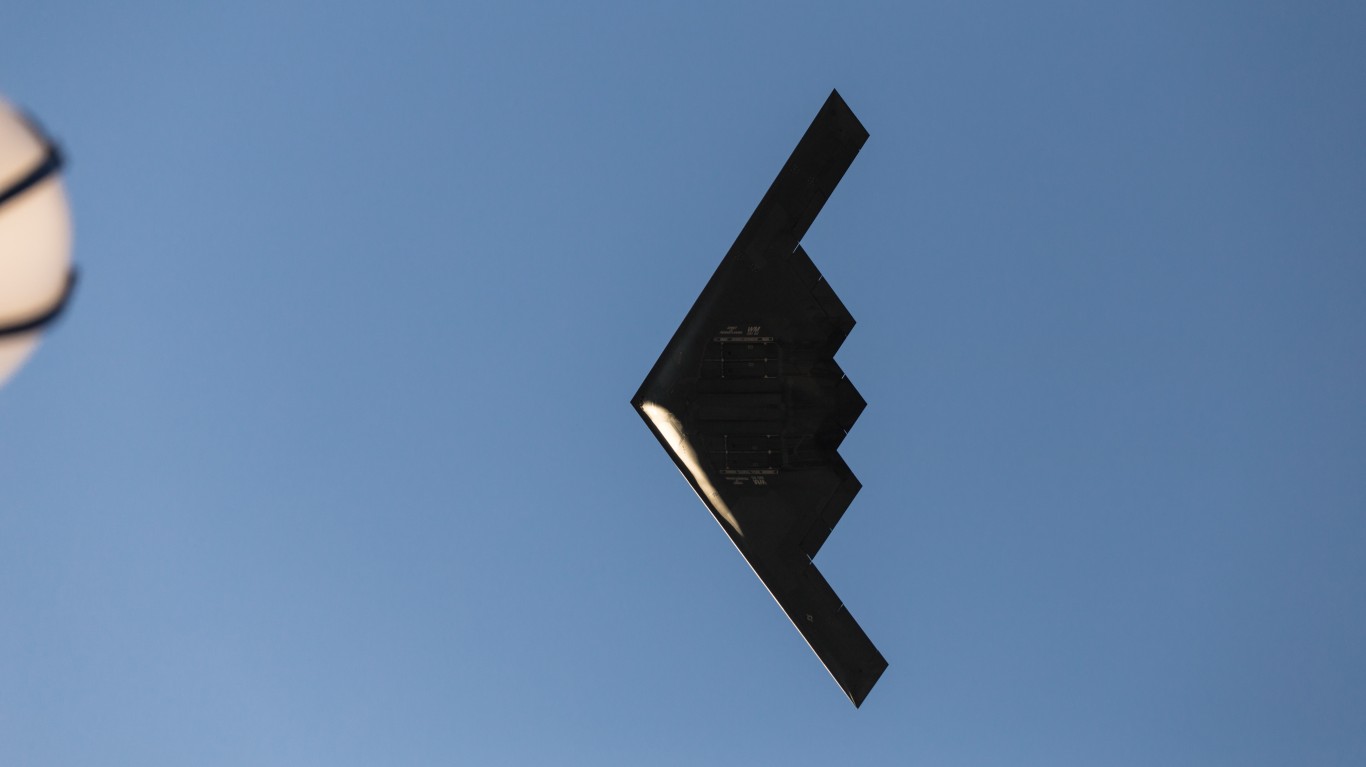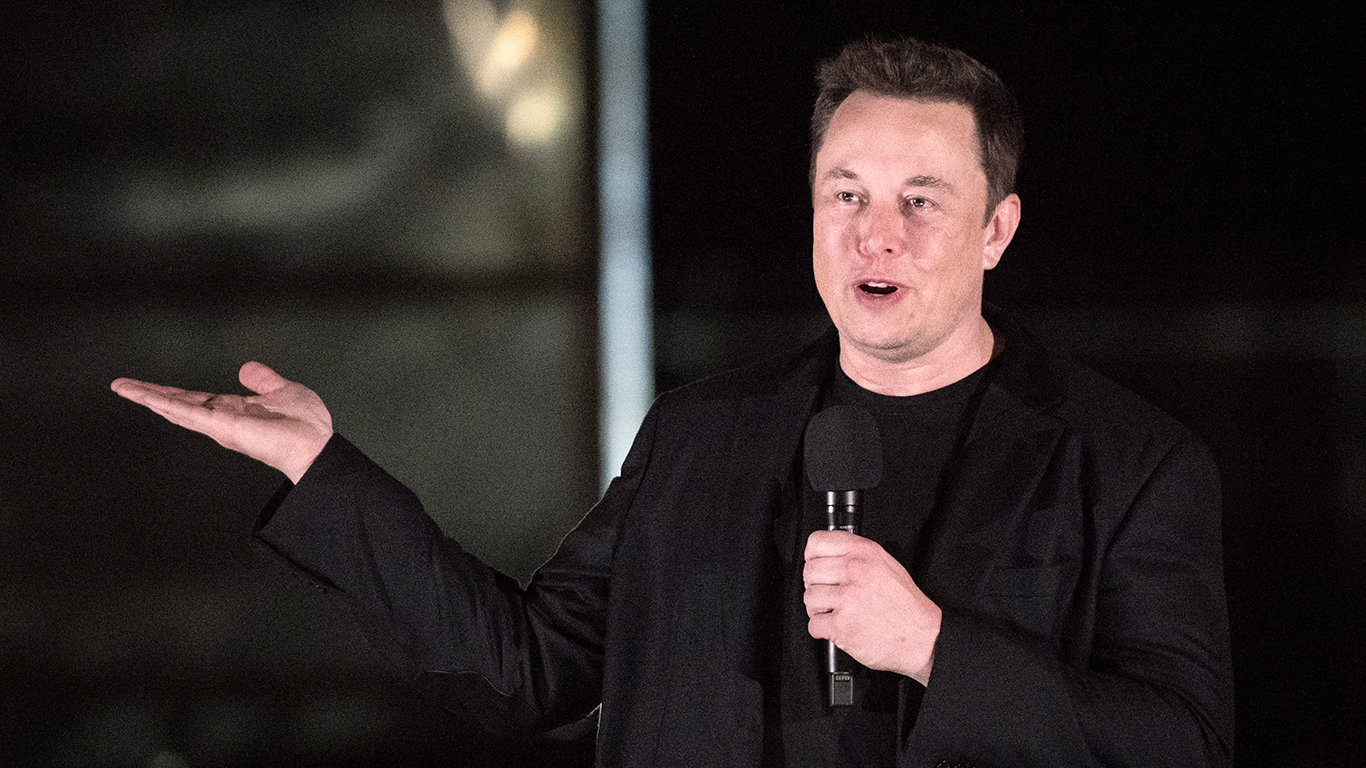
Now that we are nearing the end of 2024, investors may be certainly looking to revamp their portfolios. The summer months can be daunting for investors, with less volatility and the potential for some pretty big moves ahead of the Fall trading season. Accordingly, now may be a good time to take a look at top growth stocks, and potential defensive plays, as ways to ride this potential volatility toward long-term gains.
The three stocks I’m going to highlight here could be decent bets, in the face of the Cboe Volatility Index recently spiking to its highest level since 2020. The S&P 500 experienced the worst day since 2022, and the Nasdaq has also seen a 9% drop year-to-date. This environment, in which many top stocks are underperforming, could simply provide better entry points for specific stocks. Those with more defensive tilts could do even better, and the three stocks on this list are ones I’d definitely put in that bucket.
With investors now increasingly concerned with valuation metrics like free cash flow margins and price-to-earnings, these stocks could certainly have the potential to outperform the market. Let’s dive into why these companies could be among the best picks to consider adding in August.
Key Points About This Article:
- Investors are increasingly rotating into companies with better fundamentals, and more defensive business models.
- These three companies certainly have solid fundamentals, and could be poised for market outperformance in August and beyond.
- If you’re looking for some stocks with huge potential, make sure to grab a free copy of our brand-new “The Next NVIDIA” report. It features a software stock we’re confident has 10X potential.
Restaurant Brands (QSR)

Restaurant Brands (NYSE:QSR) recently surpassed revenue forecasts with strong sales at Tim Hortons and the company’s international locations. CEO Josh Kobza noted the company’s performance exceeded industry rivals. After the company’s second quarter report, shares surged 3%.
Now, it’s true that Restaurant Brands’ Q2 earnings came in slightly below expectations. Analysts expected $0.87 cents per share, but the company only brought in $0.86 in earnings for the quieter. That’s a slight miss, and revenue did come in above estimates, at $2.08 billion. Net income also rose to $399 million from $351 million, with a 17% sales increase driven by recent U.S. Burger King acquisitions and a 1.9% rise in same-store sales. So, on balance, I think the market was right to re-rate shares higher following this report.
Tim Horton’s led the way in terms of the company’s portfolio banners, with a 4.6% rise in same-store sales. This strong result was driven by afternoon promotions and new menu items like flatbread pizzas and energy drinks. Popeye’s saw a 0.5% increase, thanks to popular boneless wings. Two of its fast food chain, Firehouse Subs and Burger King, reported slight declines of 0.1%. But CEO Josh Kobza expressed that although Burger King’s performance was worse than expected, it’s worth acknowledging the company’s broader quick-service restaurant performance, which is outperforming its rivals.
If we are indeed headed for an economic slowdown, investing in companies that can benefit from trade down effects (such as fast food giants like Restaurant Brands) certainly makes sense. This is a company with strong fundamentals I think is worth considering on any sort of continued deterioration.
Northrop Grumman (NOC)

Geopolitical risks are ramping up, and investors and traders are increasingly looking for ways to play this uncertainty. Known for its advanced defense technologies like the B-2 bomber, Northrop Grumman (NYSE:NOC) is a stock to consider now.
The company has maintained a solid dividend growth track record, with over 20 years of dividend increases. Additionally, although NOC stock is down 7% this year, the company has provided excellent dividend growth of 11.9%, with its compounded annual growth rate of dividend increases actually accelerating over the past decade. This makes NOC a strong defense stock to have in every investor portfolio. The company’s 1.8% dividend yield, though modest, has significant growth potential amid rising global defense spending.
Despite B-21 program issues, Northrop Grumman is seen as a top aerospace and defense stock. Analysts are currently pricing in more than 16% upside potential to its current $502 per share price. Importantly, Northrop Grumman expects to reach a $40.8 billion sales for FY 2024, given strong global weapons demand. The U.S. Air Force has added a higher cost ceiling for its B-12 Raider, meaning margins could be on the rise. And it’s worth noting that this aircraft is now ready for flight testing and is on schedule for service in short order.
Moreover, Northrop Grumman recently unveiled its Cannon-Based Air Defense (CBAD) system, aimed at countering large-scale aerial threats like cruise missiles and drones. The system uses Bushmaster Chain Guns with advanced ammo for cost-effective and scalable defense. With adversaries increasing their aerial weapon capabilities, CBAD offers robust protection against sizable aerial raids targeting critical infrastructure.
Berkshire Hathaway (BRK-B)

In its recent earnings report, Berkshire Hathaway (NYSE:BRK-B) announced a significant cut to its Apple holdings. The investing giant’s stake in the iPhone maker declined to $84.2 billion from $174.3 billion. This marks the third consecutive quarter Warren Buffett has reduced his Apple stake. Despite these large divestitures, Apple remains Berkshire’s largest stock holding, followed by Bank of America ($41.1 billion) and American Express ($35.1 billion). Additionally, Buffett sold nearly $4 billion in Bank of America stock in late June.
These stock sales have boosted Berkshire Hathaway’s cash position, with more than $277 billion in cash held on the company’s balance sheet. As of the company’s Q2 report, Berkshire held $234.6 billion in short-term U.S Treasury bills. During the first half of 2024, the company purchased more Treasury bills amounting to $229.5 billion. Incredibly, this massive amount of cash actually exceeded the Federal Reserve’s entire T-bill holdings of $195.3 billion. Warren Buffet is a big fan of Treasury bills, saying it’s the safest investment in this current market. Indeed, the Oracle of Omaha’s rotation into cash at this point in time is being viewed by many as a sign of potential weakness ahead, but it’s certainly a defensive position investors can rest easy at night thinking about.
Buffett’s actions suggest unease with the current U.S. economic conditions, with Berkshire possibly gearing up for a market dip and greater buying opportunities. His strategic adjustments reflect the value-driven approach that has benefited Berkshire Hathaway investors over the long-term. Under Warren Buffett’s leadership, investing in BRK-B could be highly rewarding in the long run, given his focus on maintaining portfolio stability and shareholder protection.
The Average American Has No Idea How Much Money You Can Make Today (Sponsor)
The last few years made people forget how much banks and CD’s can pay. Meanwhile, interest rates have spiked and many can afford to pay you much more, but most are keeping yields low and hoping you won’t notice.
But there is good news. To win qualified customers, some accounts are paying almost 10x the national average! That’s an incredible way to keep your money safe and earn more at the same time. Our top pick for high yield savings accounts includes other benefits as well. You can earn up to 3.80% with a Checking & Savings Account today Sign up and get up to $300 with direct deposit. No account fees. FDIC Insured.
Click here to see how much more you could be earning on your savings today. It takes just a few minutes to open an account to make your money work for you.
Our top pick for high yield savings accounts includes other benefits as well. You can earn up to 4.00% with a Checking & Savings Account from Sofi. Sign up and get up to $300 with direct deposit. No account fees. FDIC Insured.
Thank you for reading! Have some feedback for us?
Contact the 24/7 Wall St. editorial team.





